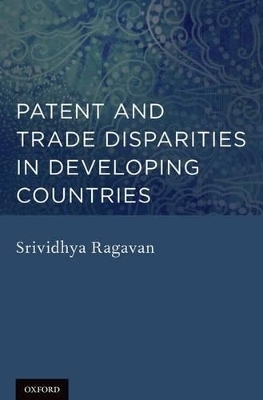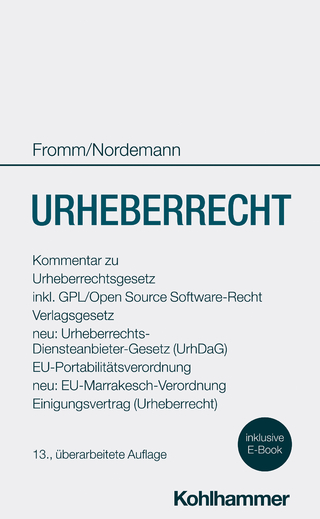
Patent and Trade Disparities in Developing Countries
Oxford University Press Inc (Verlag)
978-0-19-984067-0 (ISBN)
For developing countries, the concept of sustainable development, as opposed to rapid pockets of development, embodies great promise for socio-political reasons. Most analyses of development, however, have focused on either trade mechanisms or intellectual-property regimes, which has resulted in overly narrow and sometimes paradoxical conclusions, with corresponding policy measures that have promised far more than they can deliver. While each of these mechanisms has benefits and disadvantages, questions about how they would interact and what kind of results they produce remain largely unexplored. Similarly, almost all of these regimes provide generalized solutions that developing countries tend to denounce as ill-fitting. There are several flexibilities that can be used as effective tools, but knowing which flexibility applies best to what context remains contentious. In Patent and Trade Disparities in Developing Countries, Srividhya Ragavan examines the interaction between trade and intellectual property regimes (using the patent regime in India as the focal point) in an integrated developmental framework to determine whether and how sustainable economic growth can be achieved in developing countries. This book examines a number of important questions: Is compulsory licensing the best way to provide access to medication or is patent protection more efficient? Should innovation in plant breeding be protected at all? If so, should it be using patents or a sui generis mechanism?
Srividhya Ragavan is Professor of Law at the University of Oklahoma, College of Law with a focus on intellectual property, trade, and development. Her scholarship analyzes the interplay between international trade law and intellectual property, with an emphasis on issues that affect developing nations from embracing the trade regime. Professor Ragavan's publications have touched on diverse topics including: traditional knowledge, pharmaceutical patenting, and agricultural subsidies. Previously, she was a Texas Instruments Visiting Scholar at the Centre for Advanced Study & Research on Intellectual Property, University of Washington, Seattle.
ACKNOWLEDGMENTS ; PREFACE ; CHAPTER 1 ; CORRELATION BETWEEN PATENTS & DEVELOPMENT: LESSONS FROM HISTORY ; CHAPTER 2 ; THE UNEQUALS: NATIONAL REALITIES & PATENT REGIMES OF THE DEVELOPING WORLD ; CHAPTER 3 ; THE INTERNATONAL TRADE REGIME IN PERSPECTIVE ; CHAPTER 4 ; THE POOR NATIONS HARMONIZE ; CHAPTER 5 ; THE MISSING PIECE OF THE TRIPS PUZZLE: PROCEDURAL MECHANISMS ; CHAPTER 6 ; TRIPS PATENT REGIME: THE POVERTY PENALTY ; CHAPTER 7 ; IS A SUBSTANTIVE REGIME ADEQUATE TO GENERATE FULL COMPLIANCE? THE BIOTECHNOLOGY DEBATE ; Chapter 8 ; Dying to Dine -The Story of the Great Agricultural Barrier ; CHAPTER 9 ; The Debate on Plant Variety Protection ; Chapter 10 ; Harvesting Poverty: The PBR Story in a Subsidy Plot ; CHAPTER 11 ; Biodiversity: The Third but Ignored Paradigm of the Trade Regime ; CHAPTER 12 ; Can the Trade Regime Lead to Sustainable Development? ; INDEX
| Erscheint lt. Verlag | 6.9.2012 |
|---|---|
| Verlagsort | New York |
| Sprache | englisch |
| Maße | 231 x 165 mm |
| Gewicht | 757 g |
| Themenwelt | Recht / Steuern ► EU / Internationales Recht |
| Recht / Steuern ► Wirtschaftsrecht ► Urheberrecht | |
| ISBN-10 | 0-19-984067-9 / 0199840679 |
| ISBN-13 | 978-0-19-984067-0 / 9780199840670 |
| Zustand | Neuware |
| Haben Sie eine Frage zum Produkt? |
aus dem Bereich


